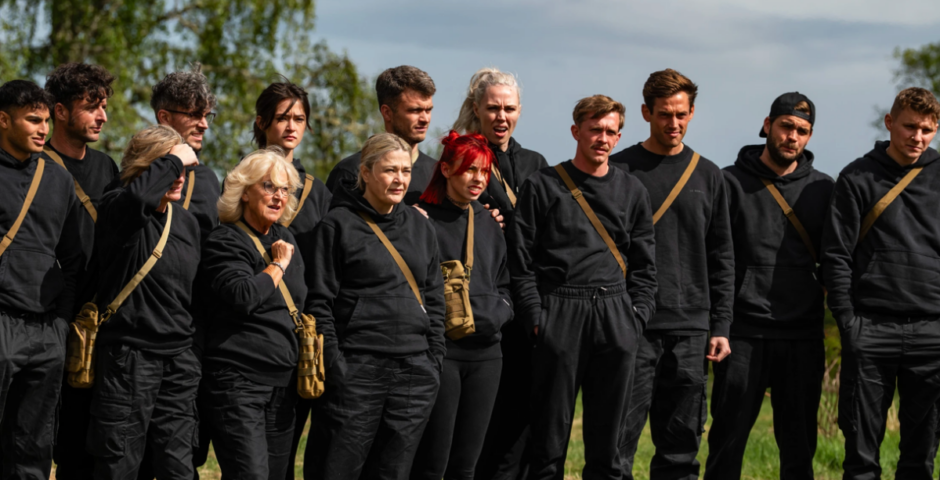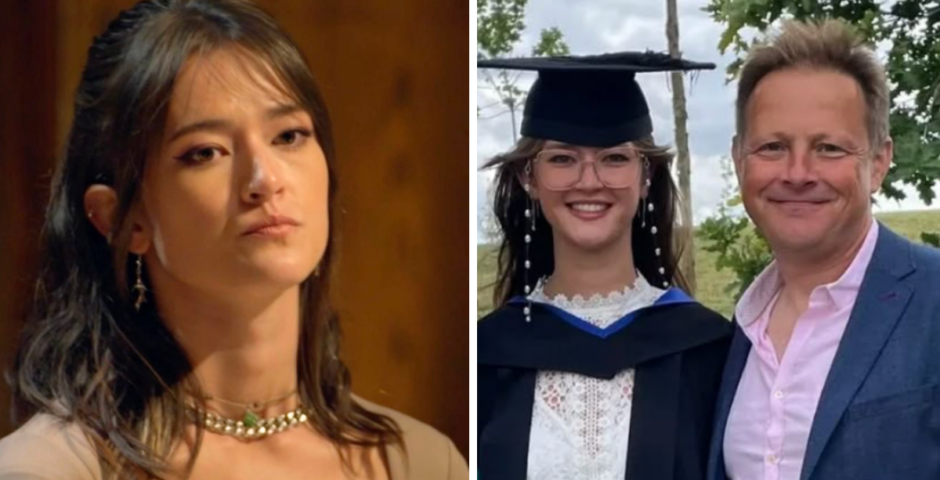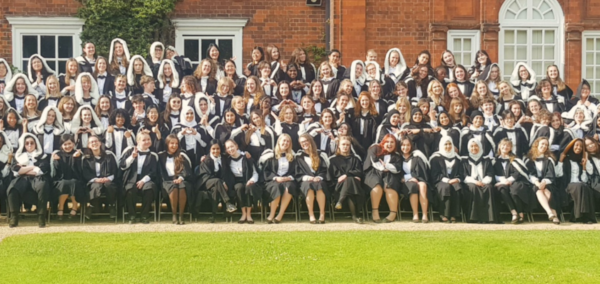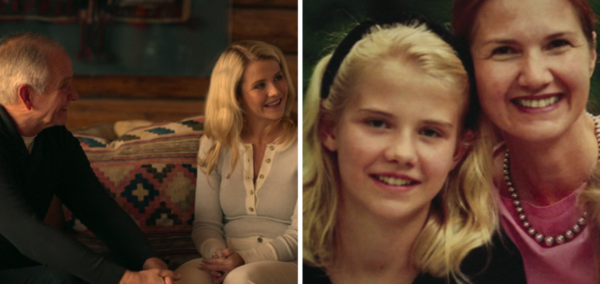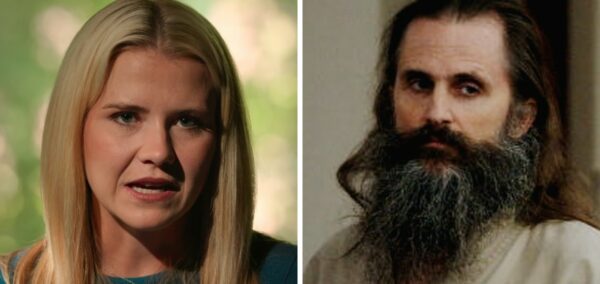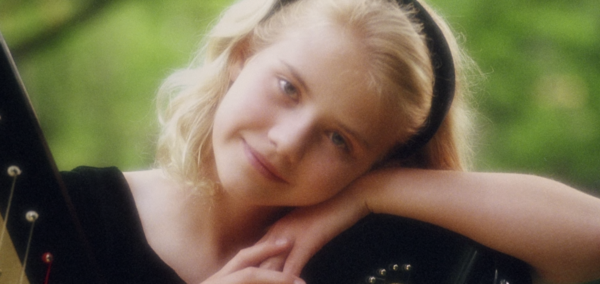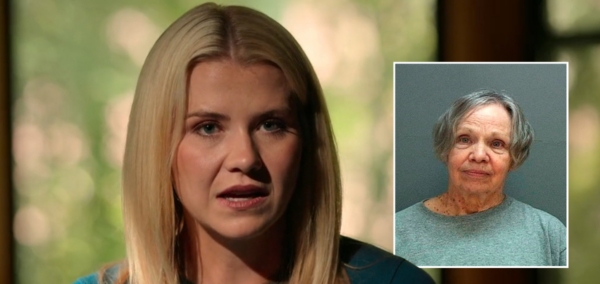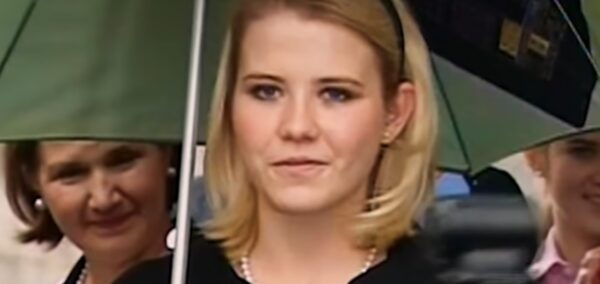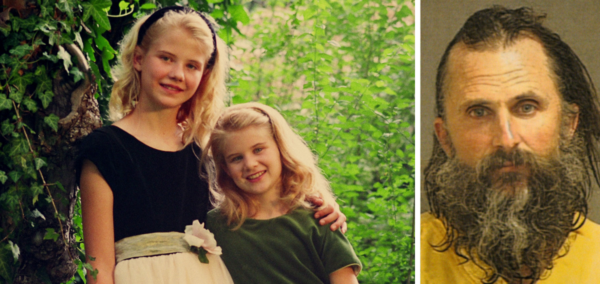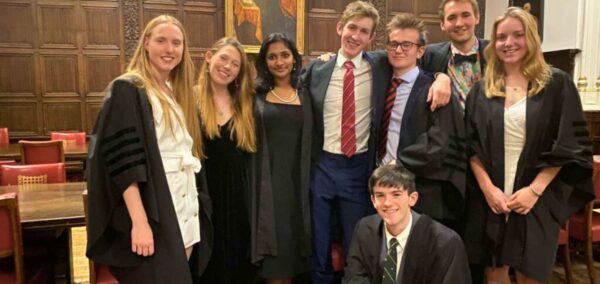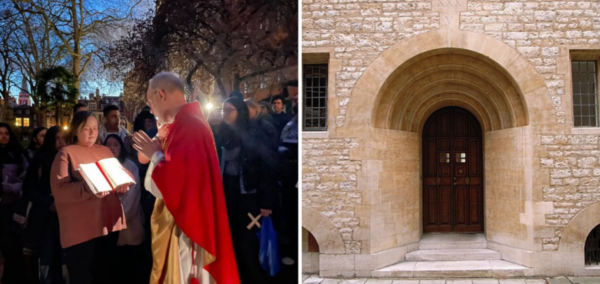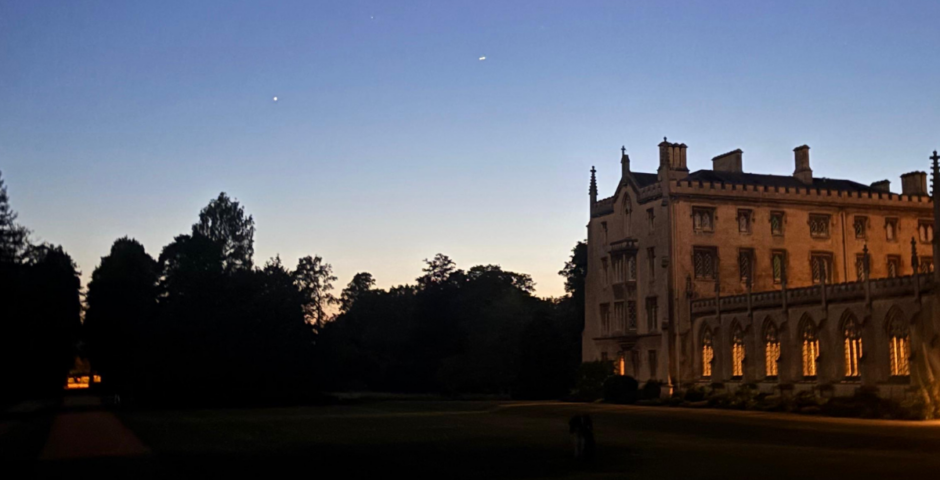
From Concept to Final Cut in One Weekend: Inside Jesus College’s Inaugural 48-Hour Film Challenge
Using the theme ‘Out of the Blue’, students raced the clock to create short films that were praised by leading industry figures
Walking into the screening and awards ceremony for Jesus College’s inaugural 48-Hour Film Challenge, I had no idea what to expect. Fittingly, the competing teams had just one weekend to create 5-minute films inspired by the theme ‘Out of the Blue’ – a phrase that perfectly encapsulated the daring originality and creativity soon to unfold on screen. That the competition was conceptually bold, packed into a single weekend (24th-26th October), I knew. What I didn’t expect was the technical expertise, emotional depth and artistic flair showcased in each of the shortlisted films.
Just as I took my seat, the audience was asked, “Have you all had a nice weekend?” – a question that elicited a collective groan of exhaustion. Having merely 48 hours to make a film fit to impress judges at the very top of the film industry is bound to have that effect. Despite this, winners of the challenge walked away with more than just CVP vouchers – the palpable buzz in the room confirmed that much fun was had, and many memories made over this jam-packed weekend. The winning team echoed this sentiment when they later told me, “We had a really fun time just hanging out with each other – hopefully that came through in the film!”
While it might seem that such a tight deadline would compromise the quality of the films, the opposite proved true: student filmmakers harnessed this time pressure to their advantage.
Most Read
I was lucky enough to speak with the winners of the challenge, who earned victory with their brilliantly funny and innovative film Project Blue. The film is an astutely satirical mockumentary in which students reflect on the difficulties they faced during the challenge, as if looking back after its completion. Asked what their first step was after the theme reveal, the team – two Film Studies Masters students and a Spanish and Portuguese PhD student – explained: “We felt like it was such a crazy concept to make a film in 48 hours that we should lean into that. We had people drop out of our team and someone else got sick, so it was a chaotic start to the challenge for us, and we thought, art mimics life all the time…”
The film blended the playful comedy of producer-director conflicts with energetic dance sequences, all tied together by the recurring motif of the colour blue. It constituted an “incredibly complete work” in a “challenging genre”, and was “unanimously voted” by the judges, according to legendary producer David Heyman, who stood on the judging panel. Despite the winning film’s brilliance, this victory still came completely out of the blue for the team: “When it popped up we all immediately grabbed each other’s hands and held in a scream – we were so happy and so completely shocked by it. It almost felt surreal,” they recalled.
Heyman, whose widely celebrated filmography ranges from the Harry Potter franchise to Paddington, Barbie, and beyond, told me shortly after the announcement: “I work in mainstream cinema, and you can see people working with their own limitations that they’re told exist in terms of what storytelling is. What was exciting here was people who didn’t have those limitations. Their limitations were ones of time – 5 minutes, 48 hours – but in terms of the way they told their stories, there was a lot that felt utterly fresh.”
He added, “I’ve worked on films for many, many years that have not been as good as these short films, and they’re working with limited resources, limited time, under tremendous pressure – what they did was really high quality.”
Although the theme ‘Out of the Blue’ manifested in many of the films through colour, it encompassed everything from the emotion to the musical genre to the sensation of surprise, appearing in stories ranging from a comically failed attempt to recreate International Klein Blue to the existential anxieties of a doorstop.
For the team that placed third with their tragic yet heartwarming film Blue Funk, ‘Out of the Blue’ meant emerging from emotional hardship by confronting, and ultimately embracing, feeling ‘blue’. The film followed a girl haunted by a blue-painted figure, a manifestation of her mental suffering. Unable to escape its suffocating presence, they eventually reconcile, reflecting the self-acceptance essential to emotional recovery.
“We called it the emotional shadow – something that follows you throughout your daily life”, said the team, who all co-wrote the film together.
Collaboration and teamwork were among the best outcomes of the challenge, not only within the University of Cambridge, but also across the wider Cambridge community. Entries from students at institutions such as Anglia Ruskin University, Hills Road and Long Road Sixth Form Colleges, Cambridge Regional College, Impington Village College, CSVPA and the Young Actor’s Company Screen Academy were encouraged, and one group of sixth form students even produced a film that was shortlisted in the top ten.
In conversation with Ms Sonita Alleyne, Master of Jesus College – who has played a leading role in shaping Film@Jesus and nurturing the college’s creative scene – she explained, “We’re a college that’s really about community engagement – the idea of being a civic college, part of a civic university in the city of Cambridge is natural to us. Next year, we’re just going to build on that and hope the word spreads this year.”
I’m more than confident that this inaugural competition has a long, bright future ahead, evident in the high praise the films received from the incredibly accomplished panel of judges who oversaw the final decisions. Amongst them were Professors Yaron Peleg and Maite Conde, Fellows of Jesus; cameraman and cinematographer Piers Leigh, with over 25 years of experience working with major streamers like Netflix, Amazon and the BBC; acclaimed director and screenwriter Céline Sciamma; esteemed playwright and screenwriter David Hare; and award-winning producer David Heyman.
The 48-Hour Film Challenge undoubtably marks a milestone in the ever-evolving landscape of Film at Cambridge. David Hare, an alumnus of Jesus College who ran the Cambridge Film Society from 1966 to 1968, recalled the meagre interest in filmmaking at the time, noting that only three students had ever applied for student grants in the field. Even when an English professor introduced the university’s first ever Film course, his colleagues in the English faculty allegedly dismissed the initiative as ‘sucking up’ to students.
“People are so much more visually literate than they were in my time, and people are also interested in making films – and so there’s so much passion and enthusiasm in the challenge”, the acclaimed dramatist told me. “Films were things you watched, not things you made in those days. I think people were hugely cinema-literate – the undergraduates loved film, and the Cambridge Film Society used to get 700 people twice a week into the hall in the English department to watch films and had people like Alfred Hitchcock come and speak. But it never would have occurred to us to make our own films. I like the idea that now, everybody thinks, ‘Oh, I can do that’.”
A vital aspect of filmmaking is digital skills, and the challenge aimed to help students develop theirs. Supported by Sony, the competition supplied lighting and sound equipment, while Piers Leigh and Sabine Smith led workshops and drop-in mentoring sessions to guide students.
Film@Jesus is at the forefront of filmmaking at Cambridge, having emerged during the pandemic, when Jesus College Master and her husband, screenwriter James McCarthy pushed for more students to get involved in making short films. The 48-Hour Film Challenge is the legacy of these efforts, and has been a groundbreaking start to the Cambridge film year.
I may have walked into this evening of cinematic prowess unsure of what to expect, but I left captivated by the vibrant Cambridge filmmaking scene, and excited for round two next year. I’d urge anyone even remotely interested in film to check it out – and, if you can’t wait another year, you’re in luck: Film@Jesus will be hosting more film competitions over the Christmas break and in the Lent Term.



